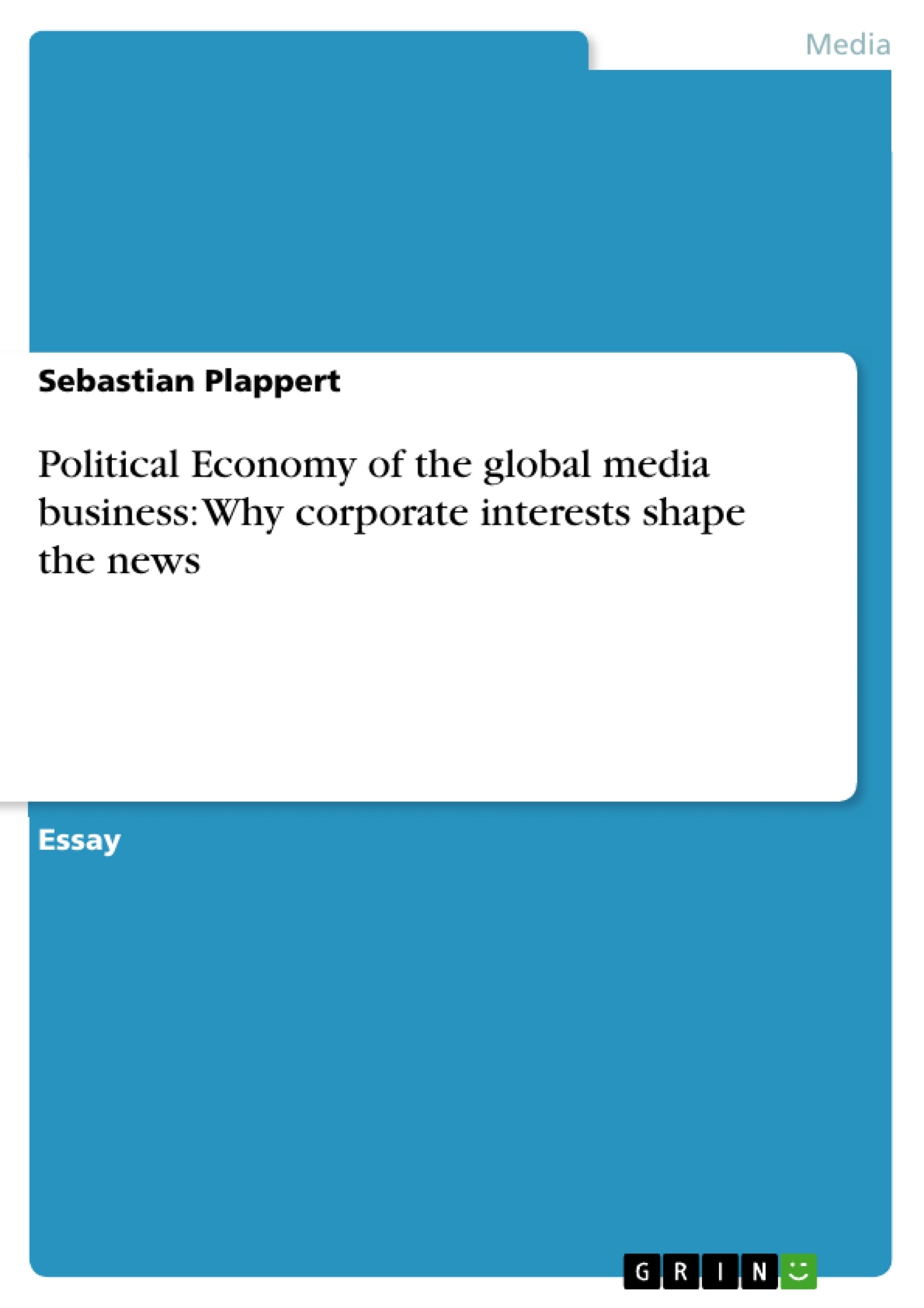This paper will briefly trace recent developments in the media industry, before examining the role of the state and neo-liberal ideology in shaping the global communication system. After analysing the effects of media concentration, special focus will be put on the concept of commodification in the media industry and the notion of cultural hegemony and dependency of media. Thereby, it will be argued that elitist corporate interests shape the news content in order to guarantee a profit friendly political environment.
Political Economy of the global media business: Why corporate interests shape the news

Essay , 2008 , 10 Pages , Grade: Distinction
Autor:in: MIR, MA Sebastian Plappert (Author)
Communications - Media and Politics, Politic Communications
Excerpt & Details Look inside the ebook

